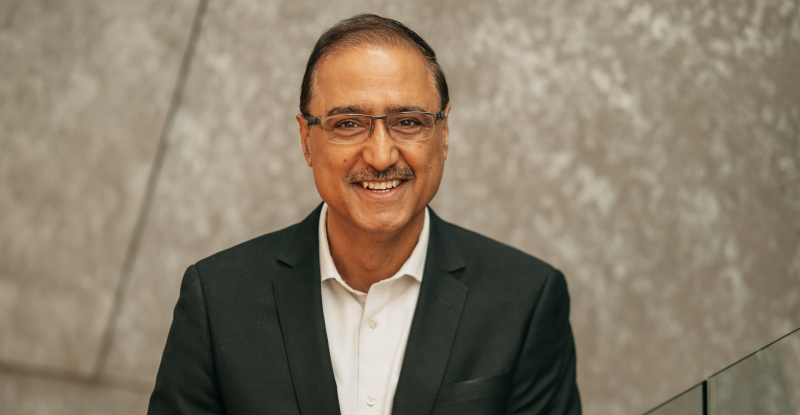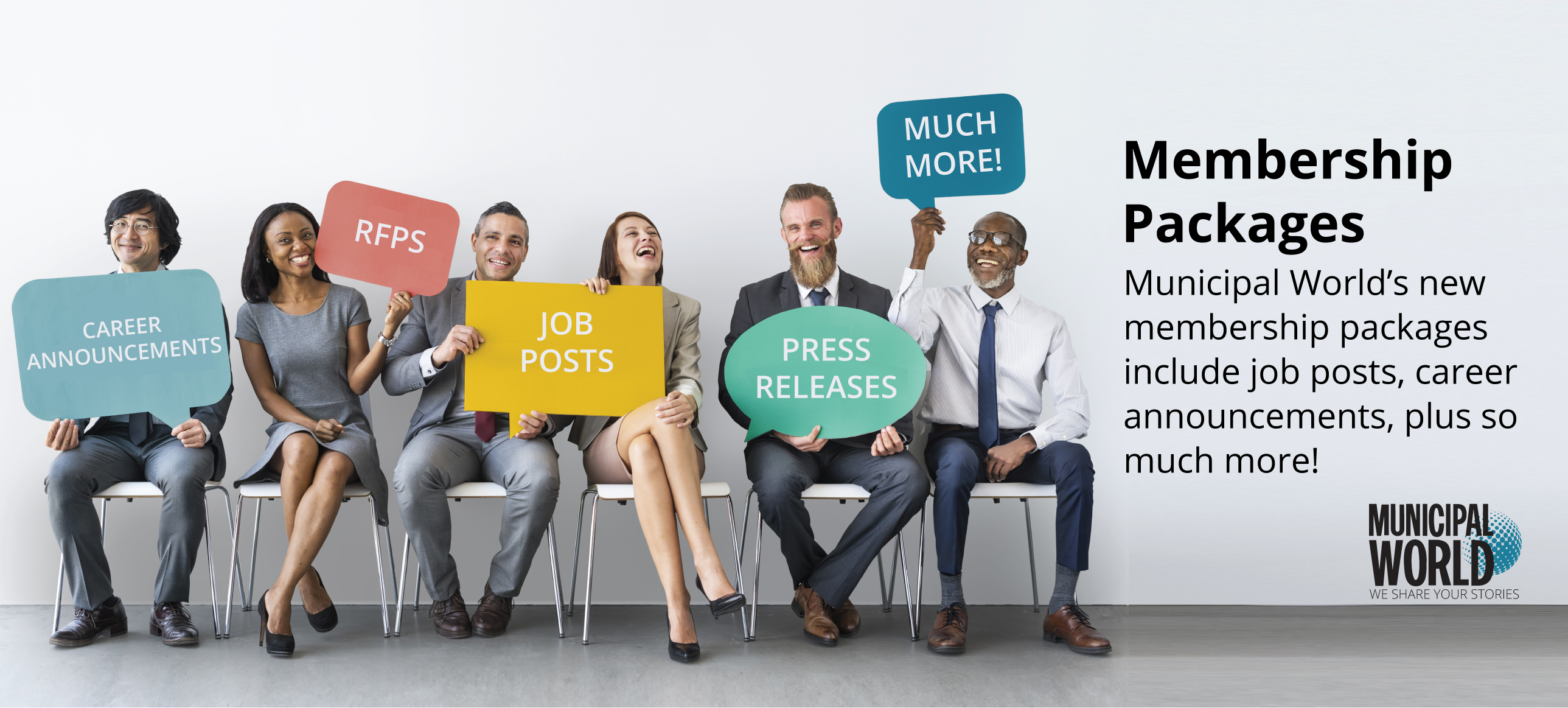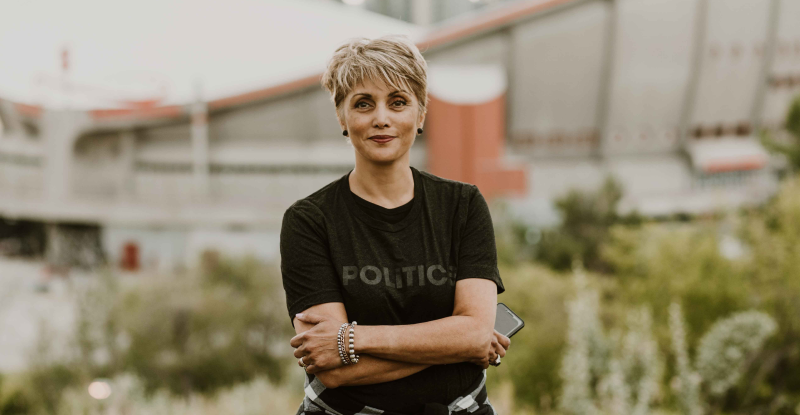Mayor Amarjeet Sohi: Today’s wicked problems need collective solutions

Edmonton Mayor Amarjeet Sohi has an extensive political resume. Before winning the mayor’s race in 2021, Sohi served as a city councillor for several terms starting in 2007. He was also elected as an MP in 2015.
Sohi is no stranger to politics and community engagement. But the view from the mayor’s office has given the one-time bus driver a different perspective. Sohi would be the first to admit the city’s challenges have been significant, but he is also quick to say he has enjoyed his time getting used to the big chair.
“The first year has been exciting, obviously, but also a lot of learning. Since I left city hall in 2015, there have been a lot of changes,” Sohi said. “I think a lot of that relationship building, getting to know each other – council, staff, the community – that’s where a lot of my time had gone.”
Everyday Community Connections
Sohi was born in India and is the first person of colour to be elected as mayor of Edmonton. Since taking over the big chair, he has worked with his council colleagues, as well as municipal staff, to focus attention on the city’s greatest challenges.
The focus this past year has been on anti-racism work, Reconciliation, improving frontline services like public transit and snow and ice removal, as well as investing in affordable housing and supports for those facing mental health and addiction challenges.
Sohi said the goal is that the city can make sure the right people are responding to the needs of the community. The hope, he explained, is that it is not the police responding to every situation when they get a call. The mayor celebrates the approach as being innovative for the community. It has also allowed council to build stronger connections together.
That collective work has also strengthened his beliefs around the importance of local government.
“It has reinforced my belief how critical – and how important – the role local governments play in day-to-day quality of life and day-to-day functioning of your community,” Sohi said. “Every day we make decisions that touch on people’s lives.”
Sohi’s time in the mayor’s office has been quite different from his years as a councillor, or as an MP for that matter. Something that surprised him is the amount of time that the mayor’s office must spend on relationship building. Not only building those connections but strengthening those relationships, as well as having a collaborative road to governance. And that, he acknowledges, can sometimes be slow and messy.
But the hope is that this culture will empower council members to ask tough questions, to empower them to challenge the administration, and that it will make them unafraid to ask questions that may make other people uncomfortable.
One of the things Sohi said council needs to do is challenge the status quo. That, in turn, focuses efforts on ensuring services are accessible to everyone and that nobody is left behind. It is also essential, he added, in tackling issues of racism and discrimination, in every aspect from racialized communities to people with disabilities, women, and 2SLGBTQIA+ and Indigenous communities. The goal, as is reflected by a piece of artwork on the wall in Sohi’s office, is creating an Edmonton for everyone.
“It is literally on my wall. That reminds us that we do the work that we need to do,” Sohi said. “I think creating that culture where people are not afraid to ask tough questions is very important.”
Local Government Perspectives
Being able to ask the tough questions is vital, as Sohi views local governments as being key for achieving national objectives.
Climate change, Sohi said, “is an existential crisis.” This raises the question of how municipalities go about building communities that can make an impact. This goes for decreasing emissions, empowering people to make choices that are sustainable, that support public transit, light rail transit systems, bike networks, and other forms of sustainable transportation. Sohi said all those things will help the country achieve the national goal of reaching net zero by 2050.
Of course, there other challenges on the typical municipal plate.
Sohi said he sees every major urban center in Canada, and in North America, as continuing to be affected by COVID-19. This impact has been reflected in many ways, but in particular through increased homelessness, rising mental health trauma, and the escalating opioid crisis in major urban centers. Those are federal and provincial areas of responsibility, but when it comes to programming to help people, Sohi said he sees the ramifications every day in his city.
With that in mind, how is Edmonton going to position itself to meet these challenges?
Sohi said he is “very optimistic” about the future of Edmonton. But when it comes to finding solutions to those big problems, Sohi said the key will be in changing old ways of thinking.
Put another way, Sohi said it is time for governments to shift their thinking around the interconnectedness of these issues. For example, when thinking about houselessness, Sohi said there needs to attention paid to racism, because housing and racism are connected. When it comes to climate change, governments need to reflect on how that relates to people’s income levels.
Sohi said the time of looking for that one silver-bullet solution has passed.
“We cannot end the housing crisis without having proper housing in place. But what we also need is wraparound services. We would also need treatment facilities. We would also need to tackle the racism aspect of housing. We also need to think about Reconciliation with Indigenous communities,” he said. “We really need to be grappling with an interconnectedness and intersectionality of these issues. That is something I want to do better job of into this year.”
Wicked Problems, Community Solutions
Sohi is quick to look at the positives, despite the seemingly overwhelming challenges facing communities today. Whether it is anti-Black racism, Indigenous Reconciliation, the opioid crisis, climate change, or homelessness, he is aware of how complicated these so-called wicked problems are.
But even so, he is not ready to throw his hands up in the air and say these problems are too complex to solve. But what makes him believe change can happen?
The answer is found every day, Sohi explains. He sees it by coming to work, meeting with his colleagues, staff, and – most importantly – the community at large.
Recently, Sohi attended a pair of public events. One was at a school where students from Grade 10-12 were talking about Reconciliation. They were talking about Black Lives Matter. They were talking about their future in economic opportunities. They were talking about all those issues that council is working toward every day.
At another event, at University of Alberta, he met with members of the Black Students’ Association. There were not only Black students in attendance, but those from a variety of backgrounds. And again, they were talking about how the community can work together to tackle these same intersecting issues that Sohi said need to be addressed in new ways.
That, he said, brings him hope.
“I see every day when I go out to attend events, particularly from young people from various backgrounds coming together and grappling these issues. And that gives me hope that we have people here, we have leaders in our community, in our city, that are not afraid to talk about the past,” Sohi said. “When I’m feeling down – and some days I do feel down because these are seemingly insurmountable challenges that we have – but then I get out into the community, and I see the community making a difference.” MW
✯ Municipal World Insider and Executive Members: You might also be interested in Miki Stricker-Talbot’s article: Wrestling with wicked problems: Five strategies for adapting in a changing world.
Sean Meyer is Senior Editor for Municipal World.
Related resource materials:



